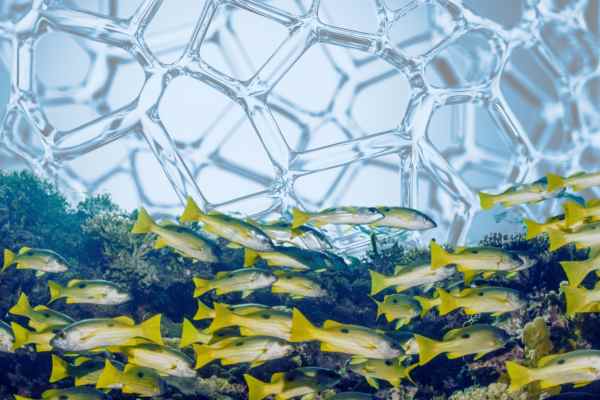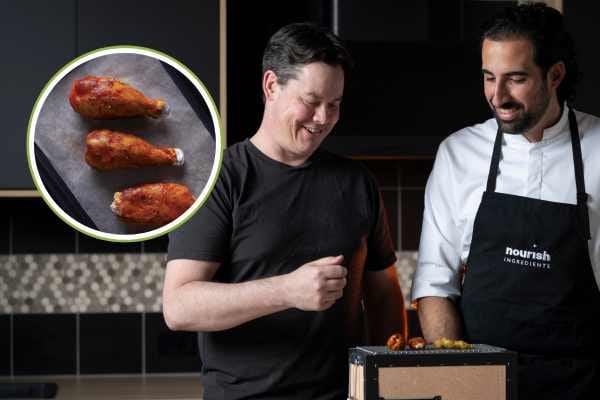Fish, the final frontier
The next generation of sustainable seafood may not be fished from the sea.

The race is on to create seafood alternatives as natural fish populations buckle under the pressure of overfishing and increasingly toxic oceans.
A new wave of alternatives is making its way to our plates, from 3D-printed plant-based salmon fillets to chia-based caviar. However, one of the most ambitious innovations in labs today is cell-cultured seafood.
Unlike plant-based options, cellular seafood is essentially the same as the real thing - it’s grown from actual fish cells in controlled lab conditions.
With New Zealand’s economy heavily reliant on the seafood industry, the government has recently committed NZ$9.6 million through the 'Endeavour Fund' to support researchers in this cutting-edge field.
Leading the charge is Dr Georgina Dowd from the New Zealand Institute for Plant and Food Research who is heading a five-year program focused on developing lab-grown seafood through cellular agriculture. The goal: to revolutionise how we cultivate and consume seafood.
"This technology has the potential to change the way we produce seafood . . . Our program will expand knowledge of fish-cell culture"
While cultivated meat such as chicken has already made strides in countries such as Singapore and the US, the production of cellular fish and other marine products has been held back by the complexity of isolating animal-free, sustainable cell lines, according to the researchers.
Dr Dowd and her team see their program as a chance for New Zealand to meet the growing global appetite for sustainable seafood alternatives without depleting natural resources.
“This technology has the potential to change the way we produce seafood,” Dowd said. “Our program will expand knowledge of fish-cell culture, generating an in-depth understanding of cultured cells' nutritional (and) environmental needs leading to enhanced isolation and proliferation.”
A cultural view
She says the research will explore not just the science behind fish cell culture but will also delve into the cultural perspectives of Māori communities and their relationships with particular fish species.
Other startups working on cellular seafood challenge include German startup Bluu Seafood, which recently unveiled a line of fish sticks and fish balls made from cultivated fish cells enriched with plant proteins. The company says it aims to enter Singapore early next year, and will then seek approval to sell its products in US and European markets.
And tackling the market from a different angle is Singapore-based Umami Bioworks which is developing an automated process for producing cultivated fish at scale using cell lines from endangered species.
3D-printed seafood
While cellular-based fish offerings are yet to overcome substantial scientific, production and regulatory challenges, plant-based alternatives are striding ahead and now extend across a wide expanse of luxury food categories.

Austria’s Revo Foods recently unveiled a production facility with the capability to 3D-print plant-based food including a whole cut mycelium salmon fillet. The company says its new 'Taste Factory’ is capable of producing up almost 55 tonnes of product per month.
Here are some other notable plant-based seafood innovations:
- US-based Impact Food debuted a range of sushi-grade plant-based salmon in June to coincide with World Oceans Day
- Canadian tinned plant-based fish creator Seed to Surf’s tinned seafood made from vegetables and fungi recently began rolling out in North American wholefood markets
- New School Foods, also from Canada, recently launched a plant-based salmon filet that it says looks, cooks, tastes and flakes like wild salmon
- France’s Ancrée launched a French Plant-Based Caviar this year, crafted from a blend of chia seeds and seaweed
- US-based Tender Food (formerly Boston Meats) recently received US$11m Series-A funding for technology that spins plant protein fibres to create structured cuts of meat, including crab.
Cellular agriculture (CellAg) relies on viable, healthy cells that can multiply rapidly, according to the New Zealand Institute for Plant and Food Research. New media must be defined, animal-free, and preferably sustainably produced. The researchers say existing fish cell lines and media do not yet meet these requirements. Their program aims to expand knowledge of fish-cell culture and generate an in-depth understanding of cultured cells' nutritional and environmental needs to enable the enhanced isolation and proliferation that underpins CellAg technology. This knowledge will be used to explore two potential applications: cell-derived collagen and cell-based fish meat.





